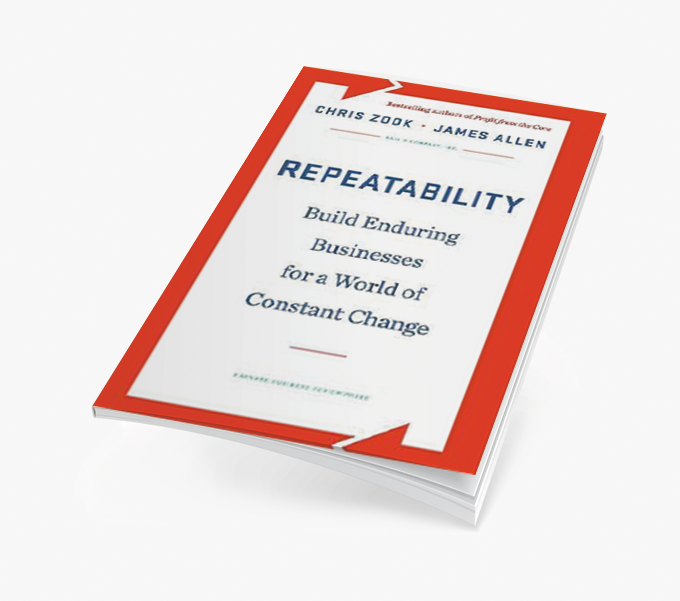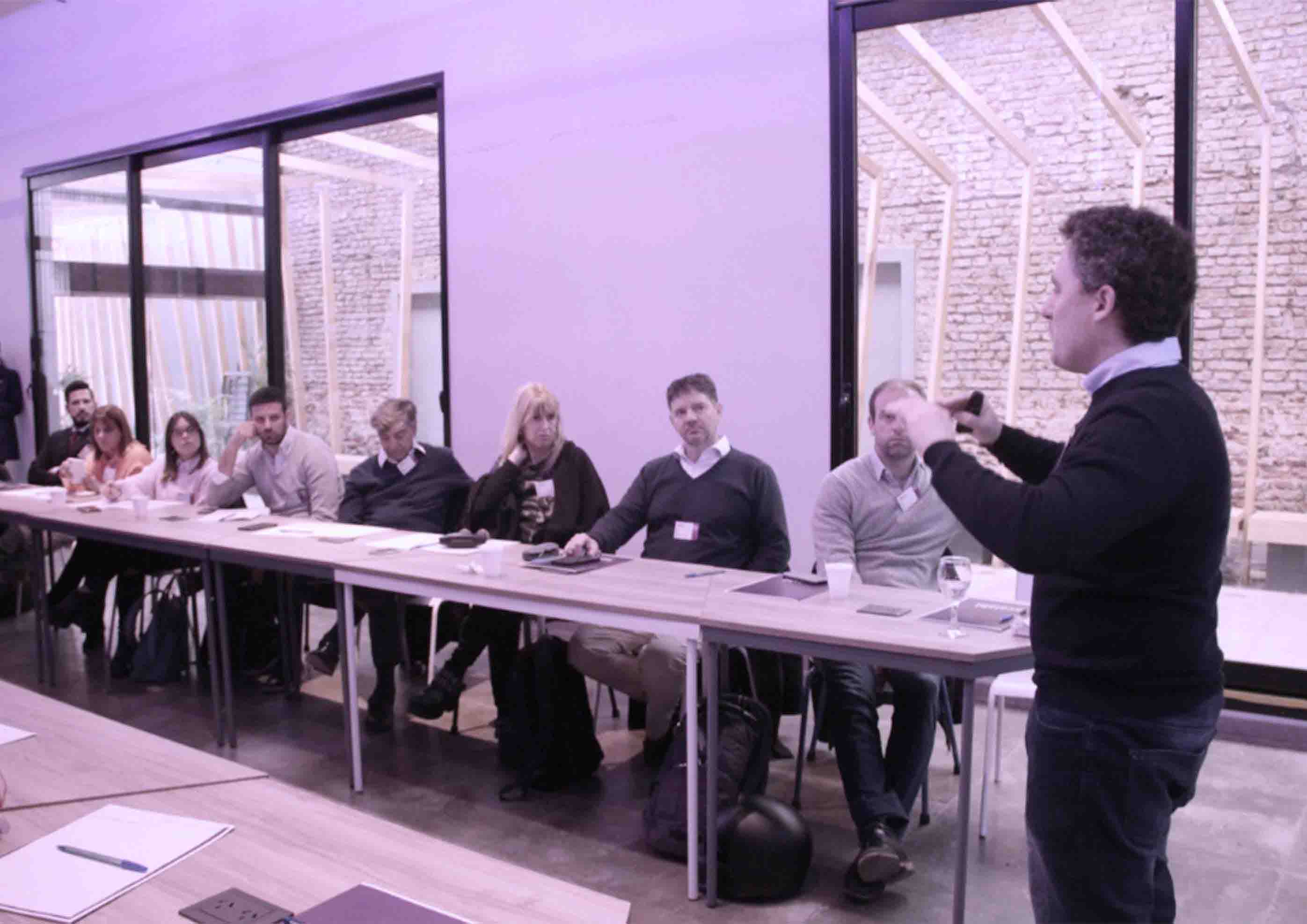


from Chris Zook and James Allen
Entrepreneurial Methodology
"Repeatability: Build Enduring Businesses for a World of Constant Change" by Chris Zook and James Allen is a guide for businesses striving for sustainable growth amidst rapid market changes. The book argues that the secret to enduring success doesn't lie in constantly seeking new business models but rather in finding and refining a core business model that is simple, repeatable, and adaptable. This model should leverage what the company does best, making it easier to replicate success as the company grows. The authors emphasize that complexity is a growth barrier, and by focusing on simplicity and leveraging core strengths, companies can achieve scalable and sustainable growth.
The concept of repeatability is illustrated through various case studies, demonstrating that the most successful companies are those that focus on their core differentiators and refine these elements to perfection. These companies don't chase after every new trend but instead double down on what they already do well, ensuring that their value proposition is clear and compelling. This approach not only helps in maintaining a strong connection with the customer base but also in making strategic expansions more coherent and less risky. The book highlights the importance of a strong, clear identity and a set of non-negotiables that guide decision-making at all levels of the organization.
Zook and Allen introduce the idea of a 'repeatable model' as a framework that companies can apply across different contexts and geographies, enabling them to grow without losing their essence or increasing complexity. This model relies on three core principles: a well-understood and widely communicated core strategy, clear differentiation from competitors, and systems for constant improvement and adaptation. By institutionalizing these principles, businesses can respond swiftly to changes in the market while preserving the core attributes that make them unique.
One of the key insights from the book is the role of feedback loops and continuous improvement in maintaining a repeatable business model. The authors advocate for a culture of constant learning and adaptation, where feedback from customers and frontline employees is continuously integrated into the business strategy. This ensures that the company remains relevant and competitive, even as external conditions change. The book also discusses the importance of leadership in fostering a culture that values simplicity, clarity, and repeatability, highlighting that the tone set by leaders significantly influences the organization's ability to stick to its core while evolving.
"Repeatability" offers a compelling argument for focusing on simplicity, clarity, and adaptability as the cornerstones of sustainable business growth. By adhering to a repeatable business model, companies can scale with agility and confidence. The book serves as a practical guide for entrepreneurs, business leaders, and innovators looking to build lasting businesses in an era of constant change. It emphasizes that in a world where change is the only constant, the ability to repeat success using a simple, clear, and adaptable model is the ultimate competitive advantage.







